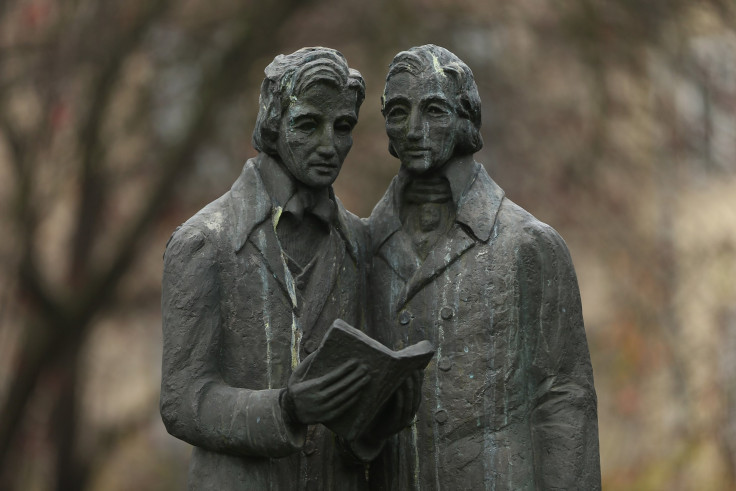Brothers Grimm Facts: 9 Quotes, Stories And Fairy Tales For Author Wilhelm's Birthday

Children and adults throughout the world have enjoyed the romantic, gory, and even humorous fairy tales of Jacob and Wilhelm Grimm, often referred to simply as the Grimm Brothers, for nearly two centuries. Here's an inside look at the brothers' quotes, history and work in honor of Wilhelm Grimm's 230th birthday.
1. Born Feb. 24, 1786, little over a year after his elder brother Jacob's birth, Wilhelm grew up in Hanau, Germany, not far from Frankfurt. The pair was nearly inseparable as young children and remained close throughout their lives.
2. While many fans of the Grimm brothers’ work assume that the Grimms were the original creators of such classics as “Snow White,” “Cinderella,” or “Rapunzel,” neither ever penned a single original fairy tale. Their work was a scholarly attempt to collect well-known German folktales and commit them to print in order to preserve them.
3. Many of their collected folk tales expressed moral lessons, particularly concerning chastity, honesty or obedience. “Then her envious heart had peace, as much as an envious heart can have,” read the description of the evil queen in the tale of Snow White.
4. “Thus it is with proud silly people, who think themselves above everyone else, and are too proud to ask or take advice,” the Grimm brothers wrote famously in one of their fairy tale collections.
Google celebrates The Brothers Grimm https://t.co/gfPf6VyS12 #Google #internet #art pic.twitter.com/x6FyzsMuiR
— Susan Dolan (@GoogleExpertUK) February 17, 2016
6. “Some men are born to good luck: all they do or try to do comes right — all that falls to them is so much gain — all their geese are swans — all their cards are trumps — toss them which way you will, they will always, like poor puss, alight upon their legs, and only move on so much the faster,” reads a passage from their fairy tales.
7. The Grimm brothers struggled with bankruptcy and were nearly deported after refusing to sign a pledge of allegiance to King Ernest Augustus in 1830 when they were professors of Germanic studies in Gottingen, Germany.
8. “He who is too well off is always longing for something new,” reads a passage from one of the Grimms’ lesser known stories, “The Mouse, the Bird, and the Sausage.”
9. The tales published by the Grimms have not only changed in their various translations but also throughout the editions in which they were published. "Though the Grimms kept about 100 of the tales from the first edition, they changed them a good deal. So, the versions with which most English-speaking (and German-speaking) readers are familiar are quite different from the tales in the first edition,” Jack Zipes, professor emeritus of German and comparative literature at the University of Minnesota, told the Guardian.
© Copyright IBTimes 2025. All rights reserved.






















